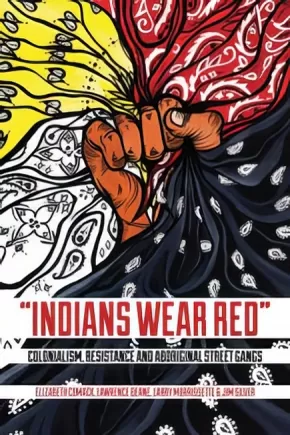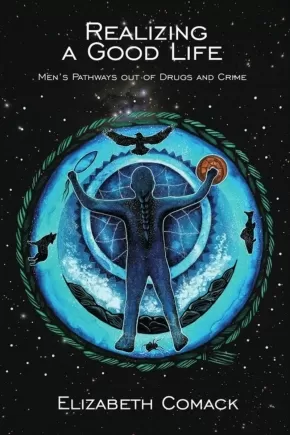Elizabeth Comack
Elizabeth Comack is a professor of Sociology at the University of Manitoba. Over the past three decades she has written and conducted research on a variety of social justice topics. Elizabeth`s current research projects stem from her involvement in the Manitoba Research Alliance`s SSHRC Partnership project, “Partnering for Change: Community-Based Solutions for Aboriginal and Inner-City Poverty.” Elizabeth leads the Justice, Safety, and Security stream of the project.
Books (2)
Synopsis:
With the advent of Aboriginal street gangs such as Indian Posse, Manitoba Warriors, and Native Syndicate, Winnipeg garnered a reputation as the “gang capital of Canada.” Yet beyond the stereotypes of outsiders, little is known about these street gangs and the factors and conditions that have produced them. “Indians Wear Red” locates Aboriginal street gangs in the context of the racialized poverty that has become entrenched in the colonized space of Winnipeg’s North End. Drawing upon extensive interviews with Aboriginal street gang members as well as with Aboriginal women and elders, the authors develop an understanding from “inside” the inner city and through the voices of Aboriginal people — especially street gang members themselves.
While economic restructuring and neo-liberal state responses can account for the global proliferation of street gangs, the authors argue that colonialism is a crucial factor in the Canadian context, particularly in western Canadian urban centres. Young Aboriginal people have resisted their social and economic exclusion by acting collectively as “Indians.” But just as colonialism is destructive, so too are street gang activities, including the illegal trade in drugs. Solutions lie not in “quick fixes” or “getting tough on crime” but in decolonization: re-connecting Aboriginal people with their cultures and building communities in which they can safely live and work.
Synopsis:
Realizing a good life is almost always defined in material terms, typified by individuals (usually men) who have considerable wealth. But classed, gendered, and racialized social supports enable the “self-made man.” Instead, this book turns to Indigenous knowledge about realizing a good life to explore how marginalized men endeavour to overcome systemic inequalities in their efforts to achieve wholeness, balance, connection, harmony, and healing.
Twenty-three men, most of whom are Indigenous, share their stories of this journey. For most, the pathway started in challenging circumstances — intergenerational trauma, disrupted families and child welfare interventions, racism and bullying, and physical and sexual abuse. Most coped with the pain through drugging and drinking or joining a street gang, setting many on a trajectory to jail. Caught in the criminal justice net, realizing a good life was even more daunting as their identities and life chances became barriers.
Some of the men, however, have made great strides to realize a good life. They tell us how they got out of “the problem,” with insights on how to maintain sobriety, navigate systemic barriers, and forge connections and circles of support. Ultimately, it comes down to social supports — and caring. As one man put it, change happened when he “had to care for somebody else” in a way he wanted to be cared for.
Educator Information
Chapter 1. Realizing a Good Life
Chapter 2. Getting into The Problem
Chapter 3. Being in The Problem
Chapter 4. Getting Out of The Problem
Chapter 5. Bringing It to a Close
The Indigenous Text label is applied because of the Indigenous contributions to this work. Its up to readers to determine if this works as an authentic text for their purposes.
Additional Information
256 pages | 6.00" x 9.00" | Paperback








